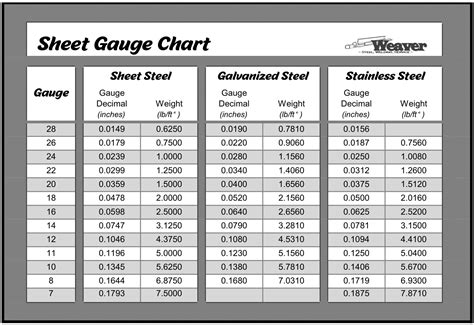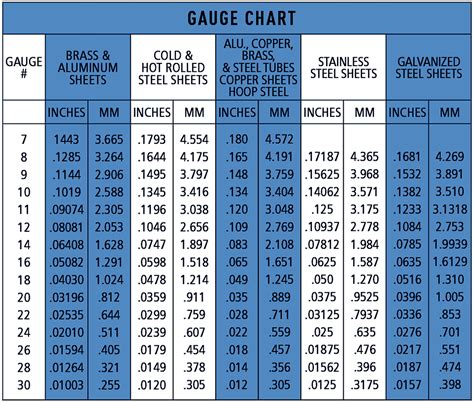28 guage sheet metal roofing panel The thickness of metal roof panels is expressed using the term “gauge” by manufacturers in the United States. The thickest available gauge is 22 gauge, while the thinnest available gauge is 29 gauge.
What is a CNC, and what is a Laser Cutter? CNC machines have three main categories: CNC routers, milling machines, and lathes. Laser cutters are a type of CNC router, so we’ll compare them to CNC routers in this article. Laser have a lot of common ground with CNC routers: they can both cut and engrave, they just achieve this in different ways.
0 · corrugated metal roof gauge chart
1 · 26 gauge metal roofing guidelines
2 · 26 gauge metal panels
3 · 24 inch metal roof gauge
4 · 24 gauge steel roofing
5 · 24 gauge metal roofing system
6 · 24 gauge metal roofing material
7 · 24 gauge metal roof reviews
CNC milling is a manufacturing process that uses a cutting tool mounted on a rotating spindle to selectively remove material from a block of raw substrate. The workpiece is rigidly mounted to a table, and this table moves or rotates on different planes so the tool can work at many angles.
Manufacturers in the United States use ‘gauge’ to express the thickness of metal roof panels. 22-gauge is the thickest while 29-gauge is the thinnest. It’s important for you, as a homeowner, to know about the gauge/thickness of a metal .

But is the savings worth working with a thinner, less durable material? Is a 29 gauge metal roof good? In this article, we analyze which panel provides the most value by comparing 26 gauge vs 29 gauge steel in the . Looking for the correct gauge for your corrugated metal roof? We discuss how metal gauge affects installation and compare the different gauges.Wagler Panels are designed using 28-gauge Galvalume metal sheets and utilize industry-standard ribbing. The ribbing design keeps water moving away from your house and into your gutters. You can have peace of mind because our Wagler Panel keeps your home safe and secure from the elements.Extra strength from the side laps and intermediate ribs offer extra rigidity. UltraVic offers 36-inch coverage area per sheet, with exposed fasteners allowing for quick installation. Light weight for ease of use or transport; cuts easily with common .
The thickness of metal roof panels is expressed using the term “gauge” by manufacturers in the United States. The thickest available gauge is 22 gauge, while the thinnest available gauge is 29 gauge. Manufacturers in the United States use ‘gauge’ to express the thickness of metal roof panels. 22-gauge is the thickest while 29-gauge is the thinnest. It’s important for you, as a homeowner, to know about the gauge/thickness of a metal .
But is the savings worth working with a thinner, less durable material? Is a 29 gauge metal roof good? In this article, we analyze which panel provides the most value by comparing 26 gauge vs 29 gauge steel in the following areas: Durability; Appearance; Cost ; 1. Durability Of 26 Gauge Vs. 29 Gauge Roofing. Panels in both size gauges provide . Looking for the correct gauge for your corrugated metal roof? We discuss how metal gauge affects installation and compare the different gauges.
Wagler Panels are designed using 28-gauge Galvalume metal sheets and utilize industry-standard ribbing. The ribbing design keeps water moving away from your house and into your gutters. You can have peace of mind because our Wagler Panel keeps your home safe and secure from the elements.
Extra strength from the side laps and intermediate ribs offer extra rigidity. UltraVic offers 36-inch coverage area per sheet, with exposed fasteners allowing for quick installation. Light weight for ease of use or transport; cuts easily with common tin-snips ; 28-Gauge thickness, recommended for roof slopes of 4/12 pitch or greater When it comes to building a sturdy and long-lasting roof, one key factor to consider is the gauge of the metal. Gauge refers to the thickness of the metal roofing panels, and it can range from 22 to 29. Lower gauge numbers mean thicker metal, which can offer more strength and durability. The table below provides sheet steel weights and thicknesses in both US and metric according to the Manufacturers’ Standard Gauge for Sheet Steel (MSG), which is the primary commercial gauge system used by sheet steel manufacturers in the United States today.
Gauge refers to the thickness of metal roofing and siding panels. Standard gauges for metal products include 29 gauge, 26 gauge, 24 gauge, and 22 gauge, with the smaller number representing the heavier (or stronger) gauge. Each gauge referenced above includes a range of nominal decimal thicknesses.Grandrib 3 the classic rib metal roofing panels, with clean traditional lines, are manufactured from only the best prime quality structural steel available. The thickness of metal roof panels is expressed using the term “gauge” by manufacturers in the United States. The thickest available gauge is 22 gauge, while the thinnest available gauge is 29 gauge. Manufacturers in the United States use ‘gauge’ to express the thickness of metal roof panels. 22-gauge is the thickest while 29-gauge is the thinnest. It’s important for you, as a homeowner, to know about the gauge/thickness of a metal .
But is the savings worth working with a thinner, less durable material? Is a 29 gauge metal roof good? In this article, we analyze which panel provides the most value by comparing 26 gauge vs 29 gauge steel in the following areas: Durability; Appearance; Cost ; 1. Durability Of 26 Gauge Vs. 29 Gauge Roofing. Panels in both size gauges provide . Looking for the correct gauge for your corrugated metal roof? We discuss how metal gauge affects installation and compare the different gauges.Wagler Panels are designed using 28-gauge Galvalume metal sheets and utilize industry-standard ribbing. The ribbing design keeps water moving away from your house and into your gutters. You can have peace of mind because our Wagler Panel keeps your home safe and secure from the elements.Extra strength from the side laps and intermediate ribs offer extra rigidity. UltraVic offers 36-inch coverage area per sheet, with exposed fasteners allowing for quick installation. Light weight for ease of use or transport; cuts easily with common tin-snips ; 28-Gauge thickness, recommended for roof slopes of 4/12 pitch or greater
When it comes to building a sturdy and long-lasting roof, one key factor to consider is the gauge of the metal. Gauge refers to the thickness of the metal roofing panels, and it can range from 22 to 29. Lower gauge numbers mean thicker metal, which can offer more strength and durability. The table below provides sheet steel weights and thicknesses in both US and metric according to the Manufacturers’ Standard Gauge for Sheet Steel (MSG), which is the primary commercial gauge system used by sheet steel manufacturers in the United States today.
Gauge refers to the thickness of metal roofing and siding panels. Standard gauges for metal products include 29 gauge, 26 gauge, 24 gauge, and 22 gauge, with the smaller number representing the heavier (or stronger) gauge. Each gauge referenced above includes a range of nominal decimal thicknesses.

corrugated metal roof gauge chart

metal foundation for house

Cable Junction Box. It is designed for cable connections and wire splicing. It is suitable for residential and smaller-scale electrical installations where cables are used instead of conduits.
28 guage sheet metal roofing panel|24 gauge metal roofing system